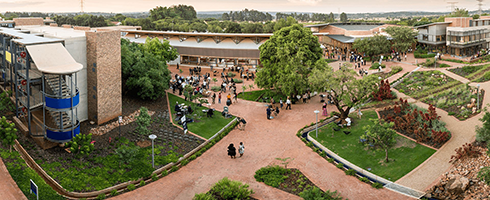Where It All Began
Future Africa’s initial development was overseen by Professor Cheryl de la Rey, former Vice Chancellor and Principal of the University of Pretoria. The vision for Future Africa was to establish a centre of excellence to promote interdisciplinary research aimed at some of the world’s most intractable problems. The centre would bring a variety of academics together in a multigenerational living and working environment to encourage multidisciplinary conversation on research. Future Africa would also cultivate the leadership capabilities of its academic community, empowering them to drive forward an agenda of collaborative and open science.







